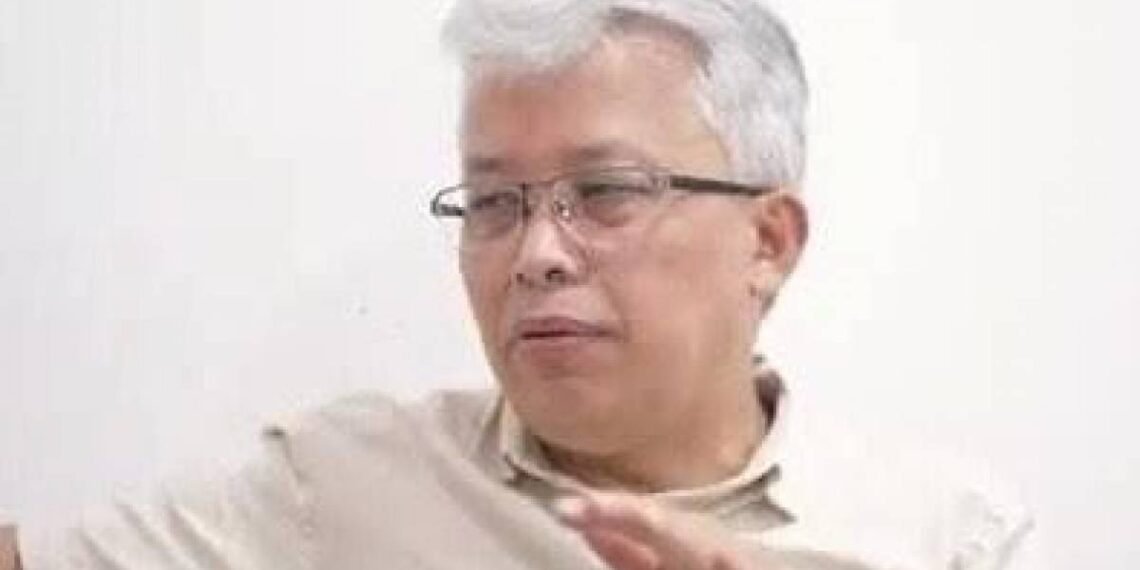Manipur Inner MP Bimol Akoijam challenges the PUCL’s portrayal of Meiteis, slams its silence on Kuki militant-political links, and calls for balanced investigation.
BY PC Bureau
August 26, 2025 — In a sharply worded and deeply analytical public post, Bimol Akoijam, Congress MP from Manipur Inner Parliamentary Constituency, has levelled serious allegations of bias, intellectual dishonesty, and ideological partiality against the People’s Union for Civil Liberties (PUCL) report on the ethnic violence in Manipur.
The report, prepared by a team of eminent jurists, civil liberties advocates, and scholars, had sought to document the state of violence and human rights violations in the region. However, Akoijam, a well-known academic and political thinker before entering Parliament, argues that the report fails in its basic responsibility of neutrality and analytical integrity. He calls for withdrawal of the report.
“Intellectually Bankrupt and Ideologically Blind”: A Scathing Rebuttal
In his detailed critique, shared on social media, Prof. Akoijam expressed anguish and disappointment over what he sees as a dangerous lapse in judgment by the PUCL and the report’s authors — many of whom are known for their lifelong commitment to justice and civil liberties.
“Let alone the inescapable partisan orientation of the authors that adds fuel to an unprecedented human tragedy in the state, the report comes to me as an embodiment of not only insensitivity, intellectual bankruptcy, and ideological blind spots but also of a hangover of racist orientalism,” Akoijam wrote.
He also accuses the report of reinforcing ideological assumptions rooted in mainland India’s historical misunderstandings of Northeast India, particularly the Meitei community.
A major section of the critique focuses on a specific excerpt from the PUCL report that refers to “widespread anger” among Meiteis toward Union Home Minister Amit Shah over alleged “betrayal” and “unkept promises.” Akoijam challenges the insinuation that the Meitei community had any kind of political deal with Shah or the BJP.
“What ‘promises’ is the report talking about?” he asks. “Isn’t it an insinuation that the Meiteis, who are ‘majority’ and ‘primarily Hindu’, and therefore presumably a part of the right-wing Hindutva forces… entered into some understanding with the BJP to attack minorities?”
He forcefully dismisses the idea, pointing out that there were Kuki ministers in the BJP-led government and that ethno-political affiliations should not be automatically conflated with national political narratives such as Hindutva or minority victimhood.
Allegations of Political Deals with SoO Groups
Akoijam flips the narrative by pointing toward a widely discussed but under-investigated relationship between the BJP and armed Kuki groups under the Suspension of Operations (SoO) agreement.
READ: COCOMI Calls PUCL’s Manipur Report ‘Politically Motivated,’ Vows Legal Action
According to Akoijam, if any covert political understanding existed before the elections, it was not with the Meiteis, but with Kuki insurgent factions operating under the SoO. He cites public records, including material placed before the High Court, alleging that:
- The BJP entered into an understanding with Kuki SoO groups to secure electoral support.
- In exchange, the BJP allegedly promised to “take care” of the Kuki demand for a separate administration once the elections were won.
- Crores of rupees were transferred to these SoO groups by the government before the elections, in ways that merit investigation.
“Does this not bother the investigators?” he asks, criticizing what he sees as selective moral outrage and one-sided scrutiny.
The reasons why PUCL must withdraw its report on the Manipur crisis.@PUCLindia pic.twitter.com/4J8CjfxZtL
— A. Bimol Akoijam (@Bimol_Akoijam) August 26, 2025
READ: Opinion: PUCL Tribunal Report on Manipur—Is It The Last Word
Akoijam further suggests that the inaction by the Union Government in containing the violence could be linked to these alleged pre-election arrangements with the SoO groups. He frames this as part of the BJP’s broader “divide-and-rule” strategy, which he argues exploits social divisions to entrench political dominance.
“The investigators should have gone into this aspect much more vigorously,” he writes, adding that the report instead portrays the violence as a simple case of a perpetrator Meitei majority versus a victimized tribal minority, without exploring the complex web of political and armed alliances.
Criticizing PUCL’s Endorsement of SoO Groups in Dialogue
A second major concern Akoijam raises is the PUCL report’s recommendation that “true dialogue must include all SoO groups” if peace is to have legitimacy among the Kuki population.
He challenges the basis for recognizing these groups as legitimate “stakeholders” in peace negotiations without critically examining their role in the ongoing violence.
“According to PUCL, what role have these groups played in the current violent crisis that led investigators to recognize them as stakeholders? Shouldn’t the same investigative lens be turned on these groups, just as it was used on Meitei actors?” he asks.
Akoijam’s fundamental argument is that the report legitimizes one set of armed actors while criminalizing an entire ethnic community based on flawed assumptions.
The Congress MP accuses the PUCL report of lacking reflexivity, failing to interrogate its own ideological premises, and ignoring the political heterogeneity within each community.
He calls for a more responsible, balanced, and nuanced approach to investigating the Manipur crisis — one that resists the urge to fit local complexities into national ideological frames.
While he promises to provide a detailed, issue-by-issue rebuttal in the near future, his post serves as a warning against oversimplified narratives that may inadvertently deepen the crisis rather than help resolve it.














